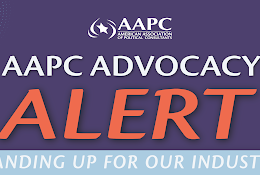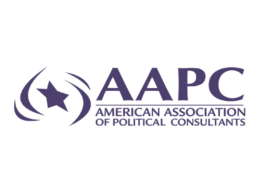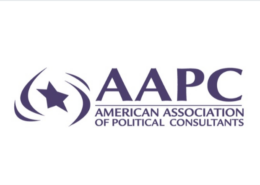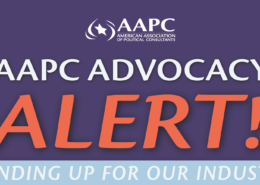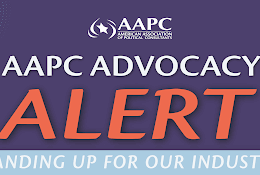 https://theaapc.org/wp-content/uploads/2025/10/advocacy-alert.png
175
512
Terrence Curtiss
https://theaapc.org/wp-content/uploads/2021/09/Layer-57.png
Terrence Curtiss2025-10-14 16:12:412025-10-14 16:12:41AAPC Requests Amendment to SB351
https://theaapc.org/wp-content/uploads/2025/10/advocacy-alert.png
175
512
Terrence Curtiss
https://theaapc.org/wp-content/uploads/2021/09/Layer-57.png
Terrence Curtiss2025-10-14 16:12:412025-10-14 16:12:41AAPC Requests Amendment to SB351Advancing the Industry
AAPC promotes ethical standards and defends political free speech—the foundation of American democracy. When policies threaten our members’ ability to participate in the democratic process, we take bipartisan action, from issuing policy statements to engaging stakeholders and even advancing cases to the U.S. Supreme Court.
Protecting political speech and the tools that power it.
Member Resources
Make the most of your AAPC membership with expert insights, research, and exclusive resources and guides. Stay informed, sharpen your skills, and save time—all designed to keep you competitive.
AAPC Policies & Standards
Our shared standards define excellence, safeguard integrity, and build trust with clients and voters. By committing to these practices, we strengthen the profession and protect the democratic process.
AAPC Legislative Priorities
AAPC’s legislative agenda advances policies that protect political free speech and the tools that power it. Developed by members and approved by leadership, these priorities equip you to engage stakeholders and advocate effectively for the future of our industry.
AAPC Foundation Research
The AAPC Foundation leads research on technology, regulation, and political communication to safeguard open discourse and strengthen democratic institutions. Flagship projects include:
➤ AI Adoption Trends in Political Consulting
The AAPC Foundation’s bipartisan research examines how political consultants are adopting AI and its impact on free speech. Conducted in partnership with Normington Petts and 3D Strategic Research, with support from Microsoft, this survey provides key insights into emerging trends.
The AAPC Foundation commissioned a first-of-its-kind bipartisan study of voter registration and turnout data from 2020–2024 in key battleground states. Partnering with TargetSmart and DataTrust, this research offers an evidence-based look at how the electorate actually behaved.
Read the Executive Summary >>
Advocacy News:
Policy Statement on Generative AI
May 3, 2023
The rise of so-called “deep fake” content generated by AI in political campaigns presents a troubling challenge to the free and fair debate of political ideas. With the use of generative AI, so-called “deep fake” technology can make distinguishing between reality and deception difficult. Citizens must have confidence in the basic truthfulness of political campaigns. While the public’s trust in institutions and campaigns has been shaken in recent decades, the use of “deep fake” generative AI content is a dramatically different and dangerous threat to democracy.
The AAPC Professional Code of Ethics currently clearly condemns false and misleading statements. “Deep fake” generative AI is contrary to the Code of Ethics because, at its core, “deep fake” content is a deception and has no place in legitimate, ethical campaigns. Therefore, AAPC’s Code of Ethics prohibits the use of “deep fake” generative AI content.
Further, no advertising using “deep fake” generative AI content will be eligible for AAPC Awards. The AAPC also encourages all media, advertising platforms, and delivery systems to refuse to carry or deliver ads using “deep fake” generative AI content.
The AAPC will use a broad standard to review, condemn, and, if necessary, sanction its members for using “deep fake” ads produced with generative AI technology. This broad prohibition includes deploying “deep fake” generative AI for non- advertising purposes in a political contest. AAPC members are advised that issuing a warning or disclaimer that the audience is viewing a “deep fake” video created using generative AI is insufficient and will not be accepted as a method to avoid this standard.
We will continue to closely monitor these technological evolutions in ad-making while protecting satire and the free discussion of ideas. At this point, “deep fake” imagery used in political ads can be defined as synthetic, computer-generated video, stills, or audio elements derived from a person’s likeness, voice, or image that is so near realistic that it is intended to lead voters to deceptive conclusions alternative to reality about a candidate, party, or issue.
The AAPC does not believe “deep fake” generative AI content as defined above qualifies as satire. AAPC believes there is a strong distinction between parody and an intent to deceive. Satire and even comedic impersonation have a long tradition in democracies and have always been presented with the audience being fully aware and “in on the joke.” The AAPC will continue to stand by its members who exercise their right to free speech with humor and satire when they use truthful and accurate images and quotes.
Statement on Push Polling
AAPC Board of Directors Declaration Regarding “Push Polling”
On May 23, 1996 the American Association of Political Consultants (AAPC) received a letter signed by thirty-one of the nation’s top public opinion pollsters condemning the increasingly common practice of “push-polling,” where phone calls aimed at voter persuasion are dishonestly presented as surveys of public opinion. The AAPC board joined the pollsters in condemning this practice as a clear violation of the AAPC’s Code of Ethics and a degradation of the political process.
The AAPC’s Ethics Committee addressed this issue in December of 1995, agreeing unanimously that so-called “push-polls” violate the AAPC’s stricture against “any activity which would corrupt or degrade the practice of political campaigning.” To the extent that practitioners of the “push-poll” ruse convey inaccurate information about an election opponent, they also violate the AAPC’s stricture against false and misleading attacks.
The AAPC board notes that so-called “push-polls” are not really polls at all. In their letter, the bipartisan group of survey researchers drew the distinction correctly, as follows:
- Legitimate polling firms open each interview by providing the true name of the firm or the telephone research center conducting the interview. Practitioners of so-called “push-polling” generally provide no name, or in some cases make up a name.
- In a true opinion survey, research firms interview on a small random sample of the population to be studied, typically ranging from up to a thousand interviews for a major statewide study to as few as 300 in a congressional district. With so-called “push-polls,” the objective is to reach a very high percentage of the voters.
- The interviews conducted by real polling firms generally range in length from at least five minutes for even the shortest of tracking questionnaires to more than 30 minutes for a major benchmark study. So-called “push-poll” interviews are typically designed to last 30 to 60 seconds.
- While real pollsters do sometimes give interviewees new information about a candidate, the intent of this process is not to shift public opinion but to simulate potential campaign debate and to asses how the voter might respond. So-called “push-polls” are designed specifically to persuade.
- To our knowledge, there is no overlap whatsoever between legitimate polling firms and firms that conduct so-called “push polls.”
The AAPC Board urges the news media and the public to take note of these distinctions and to refrain from characterizing persuasion or advocacy phone calling as “polling.” These two campaign services are totally different and should not be confused with each other.
The AAPC acknowledges, of course, that voter persuasion by telephone is a perfectly legitimate campaign practice. What we condemn is advocacy phone calling that:
- Masquerades as survey research;
- Fails to clearly and accurately identify the sponsor of the call; or
- Presents false or misleading information to the voter.
Statement on Data Privacy
At the AAPC, we respect the right to privacy and believe individuals should have control over how their personal information is used. We believe it is our responsibility to set best practices for our members related to data privacy, security, and ethics. It is essential to understand the data we collect, where it is stored, how it is used, and how it is protected. The AAPC is committed to providing the resources and education necessary to help our members establish transparent data privacy policies and data protection procedures. We encourage our members to determine which regulations apply to their businesses and to be in compliance with all state and federal regulations. We support well-defined privacy regulations and the ability to penalize companies acting in bad faith who repeatedly violate state and federal laws.
Data Privacy and Compliance Guiding Principles
At the AAPC, we encourage our members who are originators of data to:
• Establish Transparent Data Privacy Policies and Data Protection Procedures
• Respect the right of individuals to remove their names from private companies’ communications and marketing campaigns.
• De-identify personal information whenever possible.
• Store any PII in a hardened, privacy protected environment.
• Only share files with other parties through a secure file transfer, such as an Amazon s3 bucket or a SFTP.
• Follow data security best practices including two-factor authentication when accessing files that may have personal information.
• Notify processors of data with whom you work of any required name removals.
• Have an incident response plan for breaches to personal data.
• Keep Proper Compliance Documentation and maintain Proof of Compliance.
At the AAPC, we encourage our members who are processors of data to:
• Establish Transparent Data Privacy Policies and Data Protection Procedures.
• Respect the right of individuals to remove their names from private companies’ communications and marketing campaigns.
• Comply with requests by originators to remove personal information in a timely manner.
• Delete all files as soon as their use has expired, or a newer version of the data is sent.
• Only accept files via a secure file transfer.
Statement on Access
AAPC believes that suppression of political advertising reduces the ability of people to participate and learn about the democratic process – including the candidates, political organizations and policy issues that matter to them. Suppressing advertising is restricting free speech and an official campaign’s ability to reach a broad community online. Blanket political ad bans on digital platforms gag legitimate, fully disclosed campaign and policy advertising by lawful candidates and organizations, while doing little to crack down on anonymous accounts devoted to spreading inflammatory and false information.
In addition, allowing people to mute legitimate campaign advertising to avoid the noise of presidential or statewide campaigns, also prevents people from learning about the democratic process and critical issues that affect their everyday lives. With the decline of local journalism, people may never hear the arguments from competing political candidates and causes if they opt out. Small, local campaigns with budgets of only a few thousand dollars are the ones that are hurt the most when people “mute” campaigns. Muting campaign advertising infringes on the kind of dialogue most needed in a democracy, and keeps people separated from issues and their political representatives.
AAPC steadfastly supports the foundational principles of political free speech enshrined in the U.S. Constitution and urges full access to social media networks, email service providers and digital news and content publishes for all official campaigns and political and non-profit organizations.
Adopted 10/18/21
Standard on Citations
A Television spot or Direct Mail piece that criticizes an opponent should have a responsible citation in the body of the piece that leads any interested person to find the proof of the claim without an excessive burden. All other advertising should have documentation easily accessible to voters. This may include direction to a public website with information and documentation.
Television and Direct Mail pieces that do not meet this standard will be disqualified for Pollie Award consideration. All other Pollie entries of advertisements and/or political communications such as radio spots, recorded phone calls, and other communications mediums shall be fully documented.
Professional Code of Ethics

